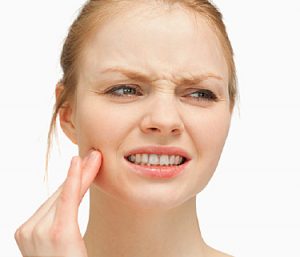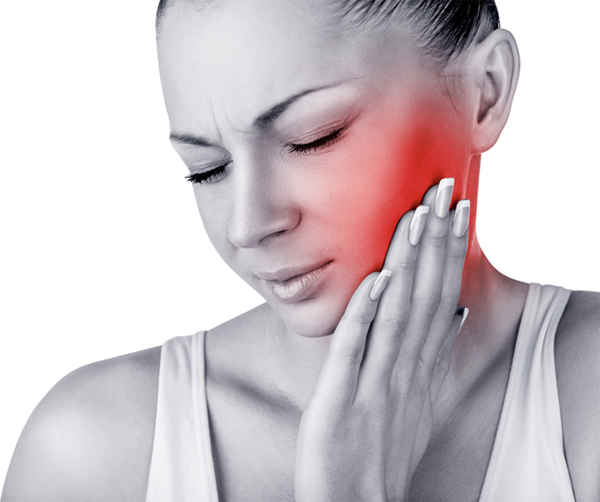
The temporomandibular joint (TMJ) connects your lower jaw to the skull.
Unfortunately, for some of us, TMJ syndrome can be a real and problematic issue that causes pain and discomfort in the jaw joint. TMJ syndrome can be caused by a whole host of medical problems and its symptoms can be shown in a variety of different ways.
This blog from The Berkeley Clinic explains more about TMJ syndrome, TMJ symptoms, treatment for TMJ, and gives helpful tips for TMJ pain management. Read more to have all your TMJ questions answered
The temporomandibular joint (TMJ) connects your lower jaw to the skull. TMJ syndrome is pain and discomfort in the jaw joint that can be caused by a whole host of medical problems.
Although many sufferers of the syndrome note a popping or clicking sound as first evidence of the condition, others suffer from more pronounced and painful symptoms.
What is TMJ?
TMJ stands for temporomandibular joint, which is the joint that connects your lower jaw (called the mandible) to your skull. You have one TMJ on each side of your face, and they are what allow you to open and close your mouth and move your jaw from side to side, effectively allowing us to eat, chew and speak as we do.
Problems with the TMJ, also known as temporomandibular disorders (TMD), are somewhat commonplace and can cause pain in the jaw and face, as well as problems with biting, chewing, and speaking.
The exact cause of TMD is often unknown and can vary from person to person. If you’re experiencing TMD, it could be be due to problems with the muscles in the jaw, the joint itself, or the bite (how the upper and lower teeth fit together).
TMD can be treated with a variety of methods, such as physical therapy, medications, or surgery, which we will go into further detail on shortly.
Unfortunately, TMD also comes with a lot of different symptoms which can look and feel different from one person to the next.

Common Symptoms of TMJ
Many sufferers of TMJ syndrome note a popping or clicking sound as the first evidence of the condition, while others suffer from more painful symptoms such as pronounced pain in the head, neck and shoulders. Unfortunately, many sufferers of temporomandibular joint syndrome have more than one symptom and it is not uncommon for multiple symptoms to unfold over time.
As the condition becomes more painful and difficult to live with, individuals may experience intense pain in the teeth when biting, headaches and migraines, and sore muscles in the face and jaw while chewing.
There are also the more visible TMJ symptoms to watch out for, including having limited movement of the jaw, along with physical identifiers like the way the teeth meet when the jaw is clenched.
What Causes TMD & TMJ Headaches?
There are several potential causes of TMD although the exact cause for individual cases can be difficult to determine.
Some common causes of TMD include:
- Muscles: Problems with the muscles in the jaw can lead to TMD. This can include muscle spasms, muscle fatigue, or muscle imbalances.
- Joint: Issues with the joint itself, such as osteoarthritis or a misalignment of the jaw, can cause TMD.
- Bite: If the upper and lower teeth do not meet properly (called a malocclusion), it can put extra strain on the TMJ and lead to TMD.
- Other factors: TMD can also be caused by factors such as grinding or clenching of the teeth (bruxism), stress, arthritis, and injury to the head, neck, or jaw.
Essentially, any disruption to a healthy motion of the jaw can lead to locking or persistent pain. The balance of the teeth and jaw system needs to be healthy and maintained, otherwise individuals stand a strong chance of developing TMD.
It’s worth noting that TMD can often be the result of a combination of factors, rather than just one cause.
It’s important to visit your dentist if you are experiencing TMJ symptoms as leaving them left untreated risks worsening the problem. This can heighten your levels of discomfort and can result in the progression of more serious conditions.
Expert Diagnosis at the BioPAK Centre
The Berkeley Clinic offers an innovative solution in the diagnosis of TMJ. At the BioPAK Centre, we offer an intensive and comprehensive way to investigate the health of your jaw and teeth and how they bite together.
If you’ve been involved in a road traffic accident or suffered a serious injury to your face, suffer from regular pain in the back, neck and face, suffer from headaches or migraines or experience discomfort in the teeth when chewing, our diagnostic centre offers a reliable way of identifying the presence of serious TMJ disorders.
We can use JVA (joint vibration analysis) to determine the condition of your jaw joint in as little as 20 minutes. If we note any issues, we’ll provide recommendations for further actions.
If you’ve noticed that your teeth aren’t clenching together correctly, a T-scan is another option. At the BioPAK Centre, we can arrange a T-scan to properly assess your bite accurately, providing you with a fantastic foundation for tailored dentist treatment to restore balance to your bite.
If your scan identifies that an injury has led to damage your jaw, we can provide you with a medico – legal report that can be used in legal proceedings. This is particularly useful for those looking for settlement with a Personal Injury Lawyer and provides a reliable dental perspective for your case.

Effective TMJ Pain Treatment Options
Whilst TMJ pain can be troublesome and impact your life in a serious way, there are certain exercises that individuals can do at home to help manage TMJ pain.
Some options for effectively relieving TMJ pain are:
- Physical therapy: Expert clinicians and physical therapists can teach you exercises to help improve the movement and strength of your jaw muscles.
- Medications: Over-the-counter or prescription pain medications can help reduce TMJ pain. Nonsteroidal anti-inflammatory drugs (NSAIDs) like ibuprofen are often recommended for TMJ pain.
- Mouthguards: Wearing a splint or mouthguard at night can help reduce the grinding or clenching of teeth that often contributes to TMJ pain.
- Heat or cold therapy: Applying heat or cold to the painful area can help reduce inflammation and alleviate pain.
- Stress management: TMD can often be made worse by stress, so finding ways to manage stress, such as through relaxation techniques or counseling, can be helpful in managing TMD pain.
- Surgery: In severe cases, surgery may be needed to correct problems with the jaw or TMJ.
It’s important to note that the best treatment plan will depend on your individual case and circumstance, taking into account the specific cause of your TMJ pain.
You can better determine the best TMJ pain-relief treatment for you by consulting with a healthcare professional at The Berkley Clinic. Get in touch today to book your initial consultation!
Book an Appointment Today
Looking to book a consultation to get to the bottom of your TMJ problems? Book an appointment with the team at the Berkeley Clinic today.
Call us to book a consultation on 0141 564 1900, or drop us an email via the online enquiry form.
Tags: bruxis, jaw pain, Teeth Grinding, temporomandibular joint, temporomandibular joint disorder, temporomandibular joint dysfunction, TMJ, tmj disorder, tmj pain, tmj specialist, tmj surgery, tmj symptoms, tmj treatment

